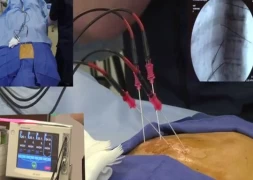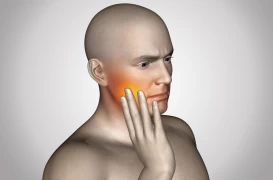
What is Algology? “Why Did I Specialize in This Branch?”
- What is Algology? “Why Did I Specialize in This Branch?”
- Reasons for Choosing Algology
- The Scope and Areas of Practice in Algology
- Chronic Pain and the Role of Algology
- A Personalized Approach to Pain Management
- Treatment Methods and Approaches
- The Future of Algology and Research
- In Conclusion…
Hello, I’m Associate Professor Tülin Arıcı, an Algologist. Algology, also known as the study of pain in medicine, is a specialized branch dedicated to understanding and treating pain. For me, working in this field is not just a profession; it is a way to address the complex and sensitive issue of pain, which is one of the most crucial aspects of human life. Pain is something that everyone encounters at some point in their lives; however, for some people, it becomes a chronic problem that severely diminishes their quality of life and impairs their daily functioning. This is where Algology steps in.
Reasons for Choosing Algology
During my medical training, I realized how important it was to alleviate the physical and emotional pain that patients experience. I saw that pain is not just a physical sensation but also a phenomenon that deeply affects a person’s psychology, social relationships, and overall quality of life. The expression on the face of someone in pain always moved me deeply. Therefore, I decided to specialize in Algology to understand, treat, and eliminate pain as much as possible.
The Scope and Areas of Practice in Algology
Algology is actually a multidisciplinary science. This means that it brings together knowledge and techniques from many different medical specialties. As a crossroads for areas such as the nervous system, musculoskeletal system, psychology, and pharmacology, Algology aims to control patients’ pain and improve their quality of life. As an Algology specialist, I work with various types of pain, including acute, chronic, cancer-related, and neuropathic pain. My treatment methods may include medication, nerve blocks, and techniques like radiofrequency.
Chronic Pain and the Role of Algology
Chronic pain is a condition I frequently encounter in my Algology practice. This term refers to pain that begins due to an injury, illness, or an unknown cause and lasts for more than three months. Chronic pain can be a constant source of discomfort and can significantly affect patients' lives. Sometimes, this pain ceases to be just a symptom of an underlying disease and becomes a disease in itself. Chronic pain is also associated with psychological issues such as depression, anxiety, and sleep disorders. As an Algology specialist, my goal is not only to reduce pain but also to teach ways to cope with it and help my patients regain their quality of life.

A Personalized Approach to Pain Management
Pain management must be tailored to each patient. Every individual’s experience of pain is different; therefore, I create a treatment plan by considering the patient’s physical, psychological, and social condition. During my initial consultation with patients, I listen carefully to their pain history, trying to understand the intensity, duration, spread, and character of the pain. This information guides me in creating the patient’s treatment plan. Understanding the cause of pain and making an accurate diagnosis is the first step in developing an effective treatment plan. Subsequently, I closely monitor my patients’ progress throughout the treatment process and make adjustments to the treatment plan when necessary.
Treatment Methods and Approaches
The treatment methods I use in Algology practice are quite diverse. Medication is usually preferred as the first line of treatment. However, selecting the appropriate medication for each type of pain and for each patient is crucial. Nerve blocks aim to stop the transmission of pain signals at their source and are often used in the treatment of chronic pain. These procedures are performed using minimally invasive techniques, and patients can generally return home the same day. Additionally, supportive therapies such as physical therapy, acupuncture, and psychotherapy play an important role in pain management.
In some complex and resistant pain cases, advanced treatment methods such as spinal cord stimulation, intrathecal drug delivery, or other surgical interventions may be necessary. These interventions are usually carried out as part of a multidisciplinary team, with the patient's condition being continuously monitored.
The Future of Algology and Research
Algology is a continuously evolving field. New treatment methods, efforts to better understand the mechanisms of pain, and multidisciplinary approaches are accelerating progress in this area. Particularly, innovative approaches like neuromodulation, gene therapy, and stem cell treatments have the potential to revolutionize pain management in the future. I closely follow the research in this field and continuously develop myself to offer my patients the most up-to-date treatment options.
In Conclusion…
As an Algology specialist, I bear the responsibility of helping my patients cope with pain. This is both a physical and emotional process, and each patient has their own unique journey. My goal is to guide them on this journey, control their pain, improve their quality of life, and help them return to their daily lives. Understanding and managing pain is not always easy, but being by my patients’ side and supporting them through this process is a great honor and source of fulfillment for me.
Wishing you healthy and pain-free days…

Associate Professor Tülin Arıcı
Algology Specialist





